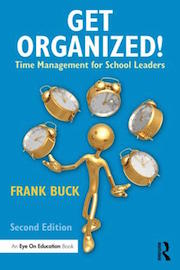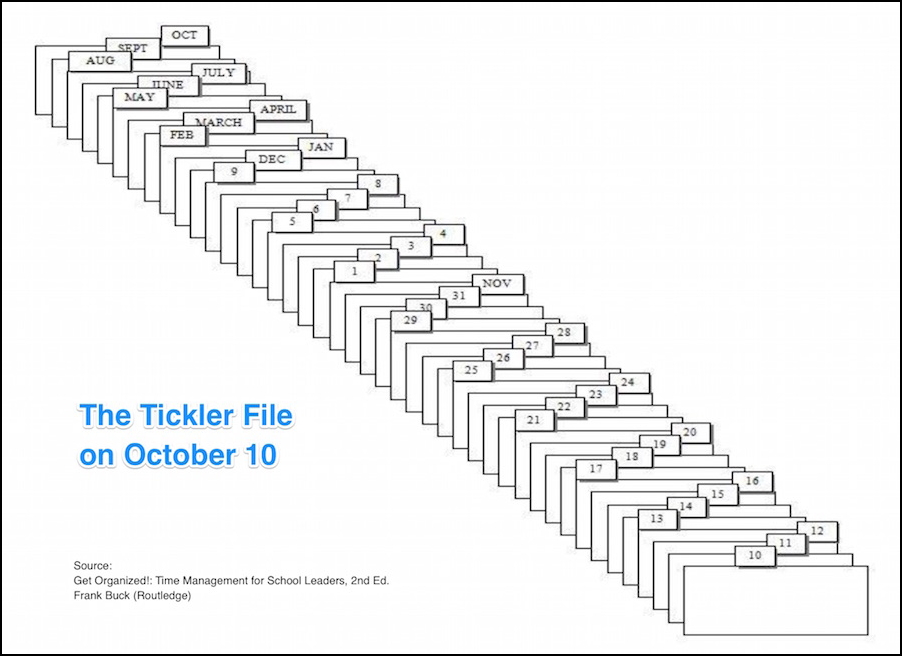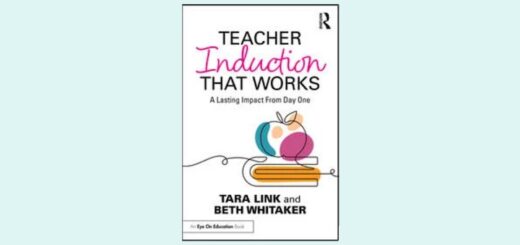School Leaders: Gain from the ‘October Oasis’
 by Frank Buck
by Frank Buck
October has always been my favorite month at school.
Procedures are well in place. The beginning-of-school events are behind you. Students have become accustomed to changing classes, dealing with lockers, and enjoying the variety of activities that go along with middle-level education. The plans you spent all summer making are paying off.
The Oasis of October
Looking ahead, the holiday traditions of November and December will make for busy weeks. But nestled between the beginning of the school year and the end of the calendar year is the oasis of October.
 As a school leader, my experience was that if I wanted to launch something new, re-tool something old, or do some course correction, October was my best shot at making it happen.
As a school leader, my experience was that if I wanted to launch something new, re-tool something old, or do some course correction, October was my best shot at making it happen.
This past May, I wrote in this space about the steps you can take to avoid May “overwhelm.” Did you read that article? If so, your tickler file, digital task list, and repeating task list should be paying off. (More on the tickler list below.) October is a prime time to review the repeating tasks you identified over the opening weeks of school. Sometimes, we get so busy doing things that we forget to leave tracks that will make the job easier a year from now.
In July, I wrote about three organizing tips for a great school year. How is your communication system with parents? If you need to fine-tune, October is likely your best chance. The same holds true for your system of documentation. My July post discussed delegation. As you look at your repeating tasks, how many of those could someone else be handling? The more you can delegate, the more time you have to do those things that only someone with your training and experience can handle.
Moving from Survival to Leadership

Don’t get distracted by the “might be nice to do” items on your desk. That’s what was meant in a quote attributed to Abraham Lincoln: “Give me six hours to chop down a tree and I will spend the first four sharpening the axe.” (Whether Lincoln actual spoke those words is subject to debate, but we can hear the truth in them.)
Leaders focus on outcomes and look for the shortest distance between here and there. They become very good at identifying, as Suzette Lovely phrased it, “what’s necessary, what’s nice, and what’s got to go.”
Most importantly, leaders are found in different roles. For many, “school leader” is a synonym for “the principal.” But, how about the assistant principals and instructional coaches? What about the department head who is balancing the role of teaching along with that of shaping the direction of a curricular area? How about the classroom teacher who sponsors clubs and other activities that benefit the entire school? Are these people not also school leaders?
Another President, John Quincy Adams, is credited with saying, “If your actions inspire others to dream more, learn more, do more and become more, you are a leader.” (This quote seems to be for real.) Given this definition, you probably see yourself in those words. The question becomes how to maximize your impact.
Invest in Yourself
Fly on any airline and you will hear the same instructions: “In the unlikely event of the loss of cabin pressure, oxygen masks will drop from the ceiling. Securely place your mask on first, before helping anyone next to you who may need assistance.” The message is clear…you can’t help someone until you first take care of yourself.
Every good thing you do for yourself or others happens through the dimension of time. Get control of how you spend your time and you begin to fit the definition of leadership crafted by this founding father.
My purpose in writing this post is three-fold. First, it serves to remind readers about the two nut-and-bolts articles which appeared earlier in this space. Second, it aims to inspire readers at an important point in the school year. Finally, for those who have read this far and are hungry for a game plan, I have something for you.
Get Organized!: Putting the Tickler File into Action
In my MiddleWeb post about avoiding May “overwhelm” I introduced the Tickler File idea. I wrote in part:
Every time a piece of paper crosses your desk that you will need sometime in the future, drop it in the file for the appropriate day. Nothing is forgotten. Student work is filed for the day you want to return it. Administrivia resurfaces when you want to complete it or submit it. Those good ideas for “when the dust settles” get filed for a day after the final bell sounds, and they magically reappear at that time.
Perhaps you have a version of this venerable organizing technique in place already. But have you considered all its possibilities to improve your management and leadership performance? Why not explore further during the “October oasis”?
How else might you use a tickler file? The possibilities differ by person and position. Here are some ideas, including several from a starter list I share in Chapter One of the new edition of my book Get Organized! —
► Birthday cards need to be purchased for friends, relatives and perhaps colleagues. Buy all of them with one trip to the card shop. Address all of the envelopes and attach return address labels to the whole batch. In the spot where the postage stamp will later go, pencil the date each card needs to go in the mail. Drop the cards in the appropriate tickler folders. Throughout the year, cards will appear on the exact days they need to be sent. You will never forget a birthday again!
► While completing a report for one of the committees of which you are a member, you see that you do not have all of the information needed. Rather than allow the report to sit on the desk, add to your task list what information you need to obtain and make a plan for how you will get it. Slip the report into a tickler file for several days in the future. When the report resurfaces, complete it using the newly-gained information.
► You are promoting the school play. As part of your publicity, you compose a series of messages for the school’s morning announcements, each one growing in enthusiasm as the date approaches. Batch the task. Write all of the announcements in one sitting. Then, file each one in the tickler file for the appropriate day.
► Proposals are being submitted, and you wish to review them all in one batch. Pick a day for this task. As the proposals roll in, throw them in the folder for that day.

► You resolve to get better about expressing gratitude towards others, yet every time you think about writing a note, you have no note cards. In January, scatter 52 blank note cards throughout your tickler file. About once a week, a blank note card surfaces, and it serves as a trigger to stop right then and take a moment to write a thank-you note to someone. Others begin to think of you as more thoughtful. Actually, you have always been thoughtful. You were just forgetful.
On those hectic days, the best of intentions often fall prey to worst of interruptions. That’s why we need simple systems like the tickler file. If you’d like to read more about setting up and using this system, it’s explained in Chapter 1 of my book, which you can get free if you sign up for my newsletter.
The oasis of October is here. Use it to grow, to invest in yourself, and to become the “school leader” you can be. Go make today count.































